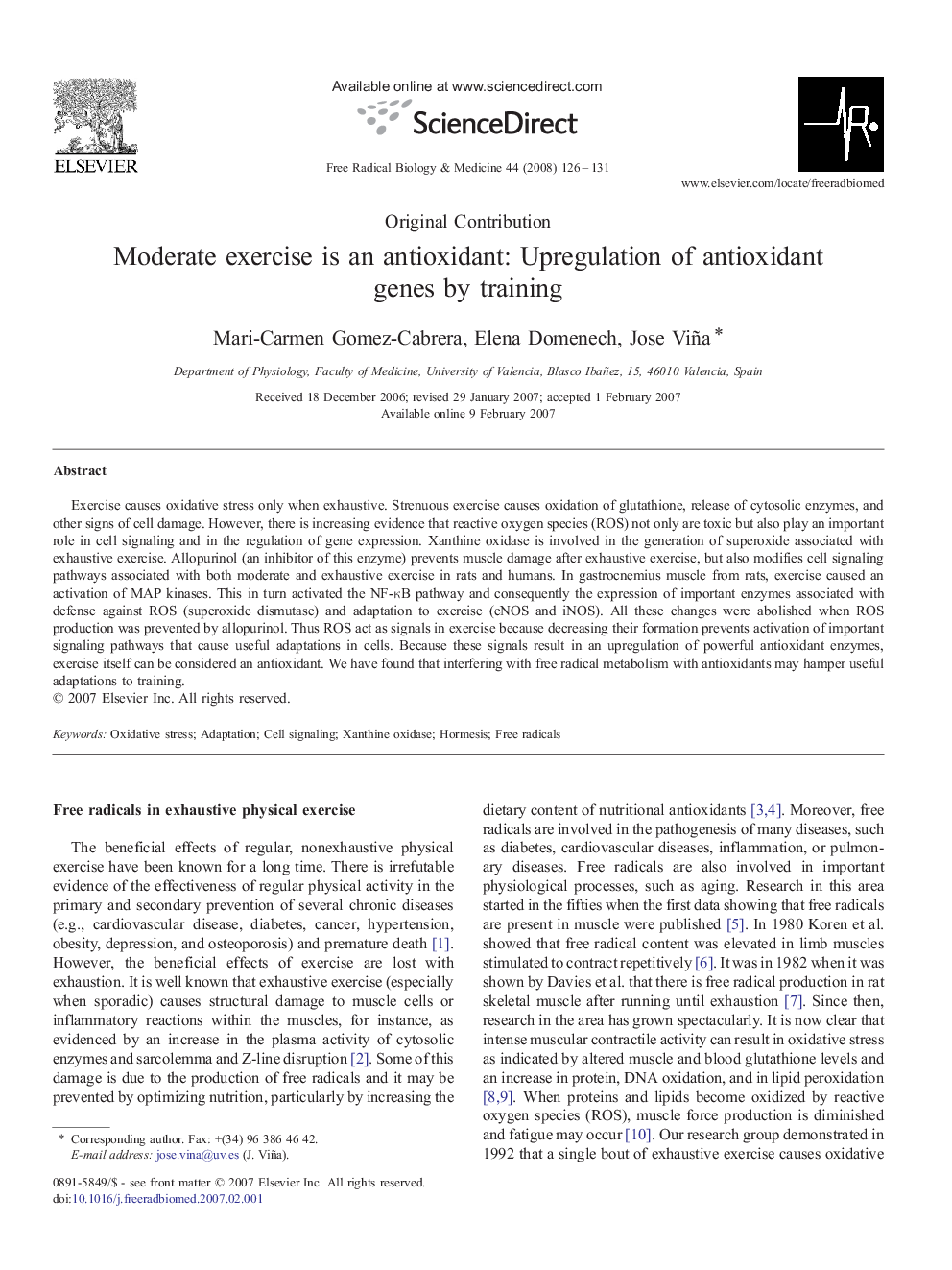| کد مقاله | کد نشریه | سال انتشار | مقاله انگلیسی | نسخه تمام متن |
|---|---|---|---|---|
| 1910340 | 1046766 | 2008 | 6 صفحه PDF | دانلود رایگان |

Exercise causes oxidative stress only when exhaustive. Strenuous exercise causes oxidation of glutathione, release of cytosolic enzymes, and other signs of cell damage. However, there is increasing evidence that reactive oxygen species (ROS) not only are toxic but also play an important role in cell signaling and in the regulation of gene expression. Xanthine oxidase is involved in the generation of superoxide associated with exhaustive exercise. Allopurinol (an inhibitor of this enzyme) prevents muscle damage after exhaustive exercise, but also modifies cell signaling pathways associated with both moderate and exhaustive exercise in rats and humans. In gastrocnemius muscle from rats, exercise caused an activation of MAP kinases. This in turn activated the NF-κB pathway and consequently the expression of important enzymes associated with defense against ROS (superoxide dismutase) and adaptation to exercise (eNOS and iNOS). All these changes were abolished when ROS production was prevented by allopurinol. Thus ROS act as signals in exercise because decreasing their formation prevents activation of important signaling pathways that cause useful adaptations in cells. Because these signals result in an upregulation of powerful antioxidant enzymes, exercise itself can be considered an antioxidant. We have found that interfering with free radical metabolism with antioxidants may hamper useful adaptations to training.
Journal: Free Radical Biology and Medicine - Volume 44, Issue 2, 15 January 2008, Pages 126–131